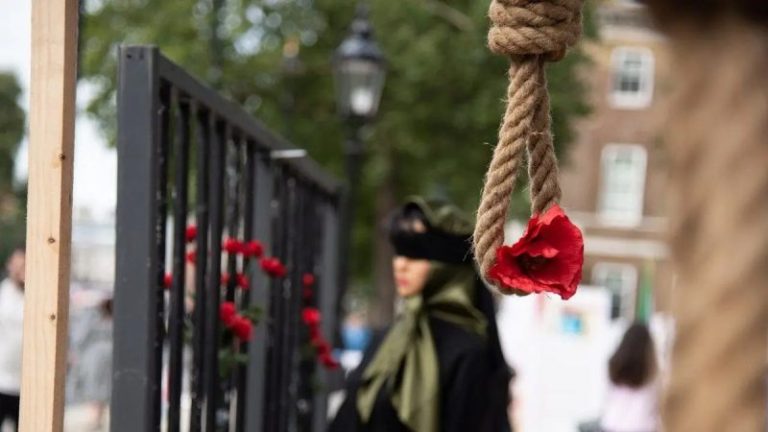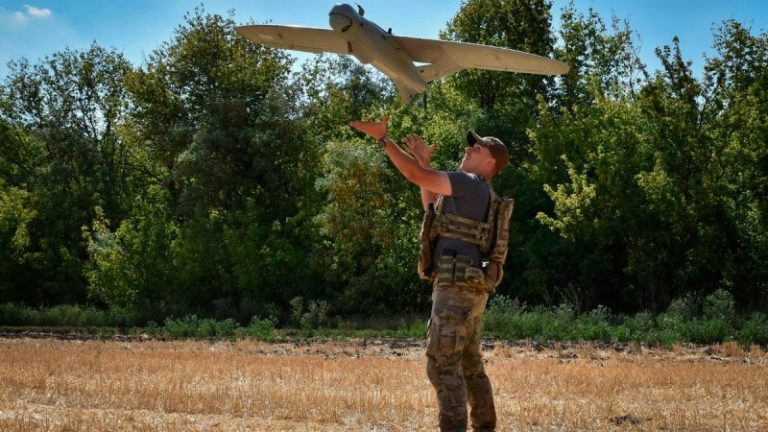Saga Metals Corp. (‘TSXV: SAGA,OTC:SAGMF’) (‘FSE: 20H’) (‘SAGA’ or the ‘Company’), a North American exploration company focused on discovering critical minerals, is pleased to announce the results from its follow up field program at the North Wind Iron Ore project in West Central region of Labrador, Canada.
Key Field Program Highlights
- High-Grade Iron Ore Potential: Iron content (Fe₂O₃) in grab samples from the Sokoman Formation range as high as 84.57% Fe₂O₃, with continuous high grade in the Lower, Middle and Upper Iron stratigraphy’s. Highest grab sample of 2025 returned 79.26 % Fe₂O₃, from the Middle Iron Formation.
- Magnetite-Rich Ore: Davis Tube separation techniques confirm the presence of magnetite-rich taconite ore, along with the occurrence of hematite, limonite, and goethite. These results are comparable to historical regional resources at the KéMag, Sheps Lake, and Perrault Lake deposits, which boasted strong resource estimates.
- Extensive Mineralization Zone: Fieldwork identified iron ore mineralization over a 4km NW-SE trend, with indications that the mineralized zone continues southeast. Mapping in the area suggests that the units dip shallowly to the northeast which would make easy drill targets for resource estimation. Surface thickness of the mineralized trend ranges between 600 and 700 meters, underscoring the project’s potential scale.
Figure 1: Regional map of the North Wind Iron Ore Project in Labrador, Canada
SAGA’s North Wind Iron Ore Project: A highly prospective iron ore asset located in the globally recognized, resource-rich Labrador Trough
The North Wind Iron Ore property located 16 kilometers southwest of Schefferville, Quebec, within the prolific Labrador Trough, represents a secondary but high-potential critical mineral asset within Saga Metals’ portfolio. The Labrador Trough, an extensive 1,100-kilometer suite of Proterozoic rocks, is renowned for hosting world-class iron ore deposits and is a major hub for iron ore exploration.
In February of 2025, Cyclone Metals Limited announced that it signed a binding commercial agreement with Vale S.A. regarding the joint development of its Iron Bear iron ore project. (See Figure 1 above for project location). Under the terms of the agreement, Vale has the right to provide up to USD $138 million of funding to the Iron Bear Project in two Phases and earn 75% of the project. If Vale elects to proceed to Decision to Mine (DTM), Vale can elect to acquire the remaining 25% of the Iron Bear project at fair market value or carry Cyclone to production with no dilution.
SAGA’s North Wind property spans 6,375 hectares across 255 claim blocks under a single license. Its geological framework holds significant potential, reinforced by a portion of a historical resource estimate (NI 43-101 compliant) completed in 2013 by New Millennium Iron. This estimate included two key types of iron ore commonly found in the Labrador Trough:
- Soft iron ores: Composed of fine-grained secondary iron oxides, including hematite, goethite, and limonite.
- Taconites: Fine-grained, weakly metamorphosed iron formations with above-average magnetite content.
Historical exploration at North Wind includes data from eight drill holes, drilled by New Millenium in 2013, which averaged 20.74% Total Fe (iron) content over 590 meters drilled. Notably, the Lower Red Green Chert (LRGC), a key stratigraphic unit within the property, returned an average grade of 24.76% Fe across 277 meters drilled and was intercepted in all eight holes. This LRGC unit forms part of the Sokoman Formation’s ‘Lower Iron Formation,’ a high-priority target confirmed by both New Millennium Iron and SAGA’s exploration team.
Figure 2: Saga Metals Mapping the North Wind Property in October of 2025
North Wind Iron Ore Field Program 2025
As part of routine claims maintenance, Saga Metals conducted a short field program at the North Wind Iron Ore property in the Autumn of 2025. In total, 38 rock samples were collected within the target area, all being grab samples, across all units, with the main focus on the Middle and Lower iron formations. Of those 38 Grab samples, 17 of them were above 30% with the highest sampling coming from the Middle Iron Formation with 79.26% Fe₂O₃.
The program focused on mapping, prospecting, and rock sampling, targeting the northern and central areas of the property for follow up and drill hole verification, and the south first pass evaluation.
The Sokoman Formation, a high-priority target for Saga Metals, forms the core focus of exploration. This formation is subdivided into three stratigraphic members based on iron content (Fe₂O₃) seen below with the 2025 Top 18 samples:
- Upper Iron Member: 37%–70.42% Fe₂O₃
- Middle Iron Member: 36 %–79.26% Fe₂O₃
- Lower Iron Member: 32.97 %–66.75% Fe₂O₃
The highest sample collected during the program (Sample ID: 1800354) returned 79.26 % Fe₂O₃, originating from the middle Iron members of the Sokoman Formation. These middle and lower members of the Sokoman Formation are particularly prospective, offering the most favorable grades based on iron content.
To further evaluate the potential of these units, SAGA employed Davis Tube Magnetic Separation techniques (as seen below in Table 1). This analytical method effectively separates magnetic (magnetite) and non-magnetic fractions (hematite, limonite, goethite and gangue minerals), providing a robust measurement of magnetite content. Results from these tests indicate that the magnetic fraction compares favorably to grades from nearby historical deposits, including the KéMag, Sheps Lake, and Perrault Lake deposits along the same geological trend. These regional deposits have reported 20%–34% Davis Tube Weight Recovery (DTWR) in historical NI 43-101 mineral resource estimates. *Past results or discoveries of resources on adjacent or nearby properties may not necessarily be indicative of the presence of significant mineralization on the Company’s property.
The 2025 work program confirmed the continued definition of the prospective Middle and Lower Iron members of the Sokoman Formation. Detailed structural mapping has shown the shallow dip of these formations to the northeast which the team has recognised is a great opportunity to expand on the New Millennium resource in the future by defining the grade continuity under cover of the Menhek formation and the less mineralised Upper Iron formation. New Millennium’s drilling in 2012 concentrated on the narrow strip in the middle where these formations were exposed on the surface.
Michael Garagan, CGO & Director of Saga Metals Corp. stated: ‘These findings, including the identified shallowly dipping mineralization to the east, reaffirm the North Wind Iron Ore Project’s potential to become a significant iron ore asset. With iron ore playing a critical role in the steelmaking process and increasing demand driven by infrastructure and renewable energy developments, Saga Metals sees considerable growth potential for the projects value and positions it as a promising contributor to SAGA’s portfolio of critical mineral assets.’
Results of the 2025 Field Program:
Figure 3: Interpreted cross-section from West to East Across the Northwind Property. Shows shallowly dipping iron formations to the east.
Figure 4: Sample location map of 2024-2025 Rock Samples showing total iron grade overlying a geological map of the area.
Figure 5: Sample 800354: Strongly magnetic sample of ‘banded magnetite and red chert, predominately massive magnetite (~2cm diameter) with goethite’ 48.05 Fe2O3(T) % (FUS-ICP)
| Sample_ID |
Formation |
Fe2O3(T) (%) FUS-ICP |
LOI (%) GRAV |
Magnetic Fraction (g) DT |
Non-Mag Fraction (g) DT |
Calculated Start Mass (g) DT |
| 1800309 |
Middle Iron Formation |
79.26 |
-0.94 |
17.39 |
12.658 |
30.048 |
| 1800352 |
Upper Iron Formation |
70.42 |
5.57 |
11.024 |
18.962 |
29.986 |
| 1800371 |
Lower Iron Formation |
66.75 |
-0.86 |
16.648 |
13.22 |
29.868 |
| 1800353 |
Middle Iron Formation |
60.01 |
2.51 |
0.486 |
29.513 |
29.999 |
| 1800307 |
Lower Iron Formation |
48.91 |
5.41 |
0.007 |
29.955 |
29.962 |
| 1800354 |
Lower Iron Formation |
48.05 |
2.32 |
0.102 |
29.879 |
29.981 |
| 1800312 |
Upper Iron Formation |
43.62 |
23.43 |
0.008 |
29.961 |
29.969 |
| 1800311 |
Middle Iron Formation |
40.41 |
-0.18 |
8.45 |
21.5 |
29.95 |
| 1800303 |
Upper Iron Formation |
39.77 |
0.89 |
9.876 |
20.13 |
30.006 |
| 1800365 |
Middle Iron Formation |
39.69 |
3.54 |
0.054 |
29.974 |
30.028 |
| 1800357 |
Lower Iron Formation |
39.57 |
4.27 |
5.213 |
24.873 |
30.086 |
| 1800310 |
Middle Iron Formation |
38.15 |
-0.15 |
8.389 |
21.59 |
29.979 |
| 1800305 |
Lower Iron Formation |
38.07 |
4.72 |
0.012 |
30.004 |
30.016 |
| 1800366 |
Upper Iron Formation |
37.38 |
12.54 |
0.025 |
29.926 |
29.951 |
| 1800369 |
Middle Iron Formation |
36.88 |
-0.56 |
9.826 |
20.124 |
29.95 |
| 1800304 |
Lower Iron Formation |
33.74 |
1.12 |
6.402 |
23.584 |
29.986 |
| 1800306 |
Lower Iron Formation |
32.97 |
3.48 |
0.018 |
29.802 |
29.82 |
| |
|
|
|
|
|
|
Table 1: Results from all samples over 30% Fe₂O₃ including the Davis Tube Separation Analysis
Corporate Update
The Company further reports that it entered into a digital marketing services agreement dated December 29, 2025 (the ‘Marketing Agreement‘) with Machai Capital Inc. (‘Machai‘). Pursuant to the Marketing Agreement, Machai will, among other things, provide the Company with certain marketing services to expand investor awareness of the Company’s business and to communicate with the investment community (the ‘Machai Services‘).
The Machai Services will include, among other things: (i) branding, content and data optimization to assist the Company to create in-depth marketing campaigns, and (ii) tracking, organizing and executing the Machai Services through search engine optimization, search engine marketing, lead generation, digital marketing, social media marketing, email marketing, and brand marketing. In consideration of the Machai Services, and pursuant to the terms and conditions of the Marketing Agreement, the Company has agreed to pay Machai a fee of C$400,000 (plus applicable taxes) over a 120-day term, which will be paid using the Company’s available working capital. This agreement may be terminated at any time, with mutual consent of both parties
The Machai Services will be rendered primarily online through a variety of news and investment community communications channels. Suneal Sandhu, the President of Machai – located at 101 – 17565 – 58 Avenue, Surrey, BC, V3S 4E3 – will be involved in conducting the Machai Services. Machai and Mr. Sandhu do not have any interest, directly or indirectly, in the Company or its securities, or any right or intent to acquire such an interest.
The terms and conditions of the Marketing Agreement remain subject to approval of the TSX Venture Exchange.
Qualified Person
Peter Webster, P. Geo., of Mercator Geological Services is a professional geologist registered with the Professional Engineers and Geoscientist of Newfoundland and Labrador, is an Independent Qualified Person as defined under National Instrument 43-101 and has reviewed and approved the technical information disclosed in this news release.
References:
Balakrishnan, T. (2013). Supplementary assessment report, national instrument 43-101 technical report, resource estimation of Sheps Lake and Perault Lake properties. Prepared for New Millenium Iron Corporation. Newfoundland and Labrador Mineral Lands Division Report, Assessment File 023J/0394.
Géostat, (2007). Technical Report, estimation of the mineral resources of the KeMag iron ore deposit. Énergies et resources naturelles Québecs, GM 64046.
Neal, HE., Watts, Griffis. (2001) Iron deposits of the labrador trough. Explore mining geol. Vol.9, No.2, pp 113-121, 2000.
Cyclone Metals and Vale sign joint development agreement
About Saga Metals Corp.
Saga Metals Corp. is a North American mining company focused on the exploration and discovery of a diversified suite of critical minerals that support the North American transition to supply security. The Radar Titanium Project comprises 24,175 hectares and entirely encloses the Dykes River intrusive complex, mapped at 160 km² on the surface near Cartwright, Labrador. Exploration to date, including a 2,200m drill program, has confirmed a large and mineralized layered mafic intrusion hosting vanadiferous titanomagnetite (VTM) with strong grades of titanium and vanadium.
The Double Mer Uranium Project, also in Labrador, covers 25,600 hectares and features uranium radiometrics that highlight an 18km east-west trend, with a confirmed 14km section producing samples as high as 0.428% U3O8. Uranium uranophane was identified in several areas of highest radiometric response (2024 Double Mer Technical Report).
Additionally, SAGA owns the Legacy Lithium Property in Quebec’s Eeyou Istchee James Bay region. This project, developed in partnership with Rio Tinto, has been expanded through the acquisition of the Amirault Lithium Project. Together, these properties cover 65,849 hectares and share significant geological continuity with other major players in the area, including Rio Tinto, Winsome Resources, Azimut Exploration, and Loyal Metals.
With a portfolio spanning key commodities critical to the clean energy future, SAGA is strategically positioned to play an essential role in critical mineral security.
On Behalf of the Board of Directors
Mike Stier, Chief Executive Officer
For more information, contact:
Rob Guzman, Investor Relations
Saga Metals Corp.
Tel: +1 (844) 724-2638
Email: rob@sagametals.com
www.sagametals.com
Neither the TSX Venture Exchange nor its Regulation Service Provider (as that term is defined in the policies of the TSX Venture Exchange) accepts responsibility for the adequacy or accuracy of this release.
Cautionary Disclaimer
This news release contains forward-looking statements within the meaning of applicable securities laws that are not historical facts. Forward-looking statements are often identified by terms such as ‘will’, ‘may’, ‘should’, ‘anticipates’, ‘expects’, ‘believes’, and similar expressions or the negative of these words or other comparable terminology. All statements other than statements of historical fact, included in this release are forward-looking statements that involve risks and uncertainties. In particular, this news release contains forward-looking information pertaining to the Company’s North Wind Project and other corporate initiatives, including market awareness contracts. There can be no assurance that such statements will prove to be accurate and actual results and future events could differ materially from those anticipated in such statements. Important factors that could cause actual results to differ materially from the Company’s expectations include, but are not limited to, changes in the state of equity and debt markets, fluctuations in commodity prices, delays in obtaining required regulatory or governmental approvals, environmental risks, limitations on insurance coverage, inherent risks and uncertainties involved in the mineral exploration and development industry, particularly given the early-stage nature of the Company’s assets, and the risks detailed in the Company’s continuous disclosure filings with securities regulations from time to time, available under its SEDAR+ profile at www.sedarplus.ca. The reader is cautioned that assumptions used in the preparation of any forward-looking information may prove to be incorrect. Events or circumstances may cause actual results to differ materially from those predicted, as a result of numerous known and unknown risks, uncertainties, and other factors, many of which are beyond the control of the Company. The reader is cautioned not to place undue reliance on any forward-looking information. Such information, although considered reasonable by management at the time of preparation, may prove to be incorrect and actual results may differ materially from those anticipated. Forward-looking statements contained in this news release are expressly qualified by this cautionary statement. The forward-looking statements contained in this news release are made as of the date of this news release and the Company will update or revise publicly any of the included forward-looking statements only as expressly required by applicable law.










